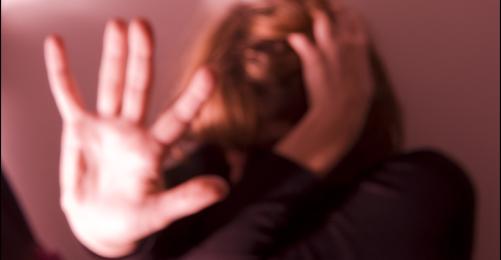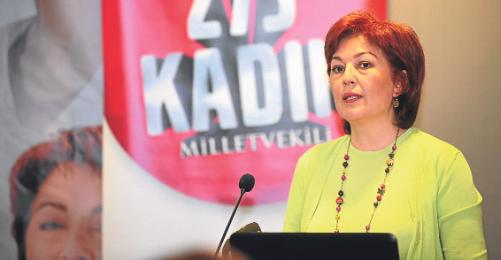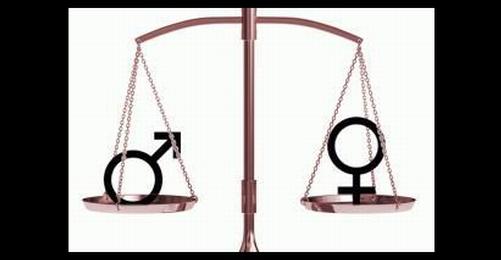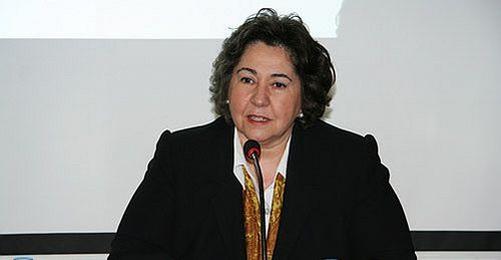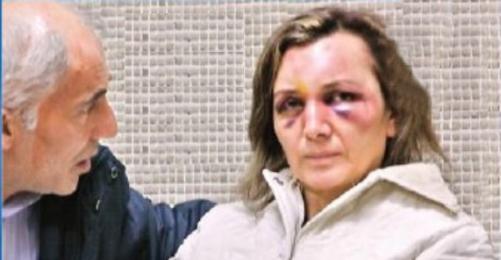The 19 political parties that are struggling to be represented in the 550-seat parliament have a total of only 277 women on their candidate deputy lists. When their rank in the lists are taken into consideration, only a maximum of 21 women are expected to win seats in the parliament.
There are 22 women lawmakers in the parliament. With one absent, the men to women proportion in parliament will drop below 4 percent.
Women and the image of parties
We have talked to lawyer Sibel Erarslan about women's position in Turkish politics and the rank of women in candidate lists.
Erarslan, who is a writer for the daily Vakit, was a member of the Women's Policies Group of the closed down pro-Islamist Virtue Party (FP), and the former head of the Istanbul Women's Branches of the closed down Welfare Party (RP) between the years 1990-1997.
Erarslan believes that the political parties use women as "display windows or makeup," and thinks that this is the reason why women in parties rank very law in candidate lists.
"Although there are tens of women who spend a lot of effort within the Justice and Development Party (AKP), there is not one single woman candidate deputy with a headscarf. The Felicity Party (SP) and the Great Unity Party (BBP) included women with headscarves on their candidate lists. But they rank very low and thus are unlikely to be elected. The ones that rank high on the lists are the 'elites.' They either have academic careers or have been appearing in the media for various reasons."
"Lobbying requires money"
Erarslan also believes that the fact that women still are "not economically independent enough," prevents them from actively participating in politics.
"In Turkey, money is essential for politics. To be able to lobby, you have to be able to take a plane to Ankara, stay in a hotel there, treat people with dinners, be careful with what you wear," says Erarslan.
What do you think about the rank of women candidates in the candidate lists?
Women are not represented in the parliament, and this fact leads to a social distrust. The simplest definition of politics is, "sharing public resources." Political goals such as justice, freedom, and equal distribution of income are in a way public resources. When you fail to fully represent the society, these notions fail to promise hope; they turn into and impassivity and harbor anti-democratic forces.
For example, as a woman wearing a headscarf, I have no trust in the parliament after what has been done to Merve Kavakci on November 2, 1999. But I would like to see the Turkish Grand National Assembly become more sensitive about women.
The FP of the time stood by and supported Merve Kavakci. They could have expelled her or told her to take her headscarf off. But they did not do that, and paid a very high price for not doing it. The party was closed down for that reason.
And today, there is not a single woman on AKP's candidate list, who wears a headscarf. Although there are many active women within the party, they are not on the candidate list because of their headscarves. BBP and SP have added women with headscarves on their candidate lists, but from the rank of those women it is obvious that the party was scared. It is impossible for those women to be elected with the rank they have. But I still think it is important that BBP and SP have women with headscarves on their lists.
Why is it like this?
Men dominate politics. Besides, the traditions, and the fact that women don't have enough self-confidence also play a role. But most importantly, women don't have economic independence. In Turkey, money is imperative for politics.
Under these circumstances, women enter politics weak and serve only as a display window. The same goes with the candidate deputy lists. They choose "elite" women instead of naming those women who spend so much effort for the party. When we look at the women that rank high, we realize that they are either academicians, or have appeared in the media frequently.
Almost all women candidate lawmakers say they are very pleased with the lists. There are even some that express they were "honored." Why don't women react to this?
Politics shape women into being like this. I call such women "women who've turned into men." I had become one of them for a while in the past. In Turkey, people do politics by saying what the leaders would want them to say. Even within the party, people do not participate directly in politics. Everybody is trying to get the leaders to like them, and thus have their names put on the lists.
On November 2, 1999, when Merve Kavakci was called to the desk to take her oath in the parliament, a group of women deputies from the Republican People's Party (CHP) tried to block the desk holding hands like a bunch of elementary school kids. Some women in the parliament say, "Certain lucky women with certain criteria can be in the parliament, but other, less lucky women who are different, cannot." And this is an example of women against women.
What should women do against the domination of men in politics?
Women need to show strong opposition. Women who belong to a certain party need to criticize, and women who are not organized under a party, should work with non-governmental organizations (NGO). Women writers and artists should also speak out more about this issue. And people should place importance on women responsiveness and pay attention when they cast their votes.
Where will women be able to express themselves?
Women of every age, economic class and education level can be represented within the NGOs. I believe that women are more responsive to civil issues than political issues. Women's voices are heard very strongly in arts and literature. Women have also proved to be very powerful in the civil disobedience demonstrations. Women lead some of the most important initiatives in Turkey. The protests by girls with headscarves, the Saturday mothers and women for Bergama were some of the biggest protests in Turkey. But still, women are not active in politics because they don't have the money. (BB/EA/NM)





